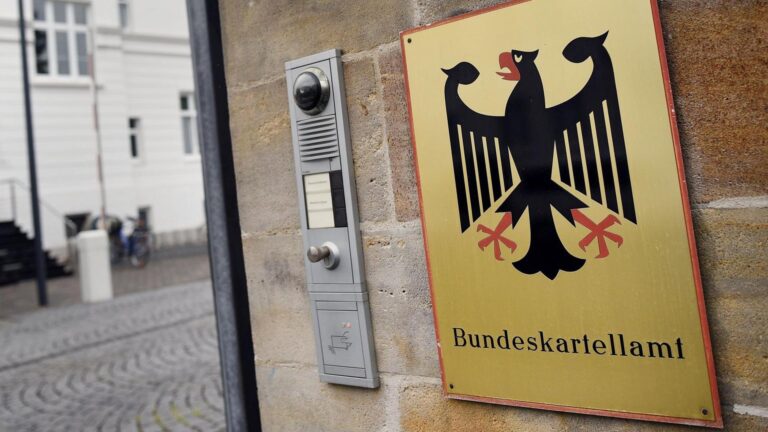Rail ticketing: antitrust authorities finally take action against incumbents’ anti-competitive practices

When it comes to recent developments regarding Europe’s competition watchdogs’ actions on rail ticketing markets, a particular Lenin quote comes to mind: “there are decades where weeks happen; and there are weeks where decades happen”. Let us take you through the latest developments, some of which we have indeed been awaiting for what feels like decades.
1. On 26 June, the Bundeskartellamt came to a final decision in its long-running investigation into Deutsche Bahn’s (DB) abusive practices against mobility platforms such as Trainline or Omio. For the authority, DB abused its dominant position to restrict competition from third-party mobility platforms that seek to sell DB tickets. As a result, the authority now obligates DB to:
- Give platforms the same wealth & depth of data that DB’s own websites have (incl. cheapest tickets). This means that the best prices and offers currently on available only on DB’s website will become available on third-party sites as well.
- Allow platforms to market tickets using DB’s brand. As an example, DB currently forbids platforms from advertising their services on Google using the words “Bahn” (German for rail), arguing that it is part of their protected brand.
- Compensate platforms fairly for tickets sold. For tickets sold via third-parties, DB currently offers unreasonably low commissions.
The decision has been hailed as a milestone for fair competition and consumer transparency in the German rail market. The Bundeskartellamt has delivered a clear catalogue of practices that dominant railways should not be allowed to pursue, which gives mobility platforms the opportunity to develop their services and allow customers a convenient way to compare all relevant tickets.
2. Also on 26 June, the European Commission’s own competition department (DG COMP) announced that it has received commitments from the Spanish incumbent Renfe as a result of its investigation into Renfe’s abuses against mobility platforms. By offering to settle now, Renfe wants to avoid a full investigation and decision by DG COMP. Renfe’s offer is less comprehensive than the decision of the Bundeskartellamt, but includes two key elements:
- Access to the full “content” (meaning all ticket-related information) and real-time of Renfe for third-party platforms. This means platforms will be able to show all Renfe offers and inform passengers about cancellations, delays and other disruptions.
- A move away from technical restrictions meant to impede the sale of Renfe tickets through independent channels.
While these commitments offered by Renfe do not represent the final outcome of the case, they do show a clear trend in alignment with the German case: third-party mobility platforms should be able to sell all tickets of dominant railways without being unduly restricted in their marketing or IT systems.
3. In addition to the two major cases against Deutsche Bahn and Renfe, a similar investigation against Italy’s incumbent operator Trenitalia was recently settled after commitments were made. The French Autorité de la Concurrence further announced that they raided the offices of unnamed parties as part of an investigation into ticket distribution on the French rail market. More information on this case has not yet been made public, although one might speculate that it may follow the pattern set out by DG COMP and the Bundeskartellamt. The recent weeks have shown that Europe’s competition authorities are growing increasingly impatient with the anti-competitive conduct of large railways, which led to a flurry of antitrust action.
4. Finally, the German Monopolies Commission released its biennial report on the rail sector on 4 July. While focused only on the German market, the Commission’s findings are striking: “access to real-time and forecast data [for third-party platforms] is clearly recommended. (…) This can stimulate competition on rail. This would also benefit passengers in the form of in the form of lower ticket prices, as shown by experience in other countries.” These recommendations align with the developments in the DB and Renfe cases, but the Monopolies Commission draws the logical conclusion: “To unleash the full potential of the offering, integrated mobility service providers need data not only from DB Group, but from all carriers so that they can offer a coordinated service across different modes of transport. Such data access will ultimately only be possible to implement through regulatory provisions.” That is exactly what the European Commission is working on with the coming Regulation on Multimodal Digital Mobility Services; ensuring that third-party platforms can distribute the tickets of large transport operators under fair terms. Relevant interventions by competition authorities are welcome (also regarding airlines, as in the ongoing case against Finnair in Sweden), but the systemic issues warrant an EU-level regulatory framework. Read more about the Regulation on Multimodal Digital Mobility Services here.
This concludes our overview of the latest antitrust developments in rail ticket distribution, but it will certainly not be the end of the story. Meanwhile, in a parallel world, Europe’s incumbent railways recently urged policymakers to “trust the sector to establish suitable framework conditions” for distribution of tickets on online platforms. Another quote often attributed to Lenin goes: “trust is good, control is better”.
NB: Our approach to Lenin quotes is very much the widely accepted “Retweet ≠ endorsement”.



